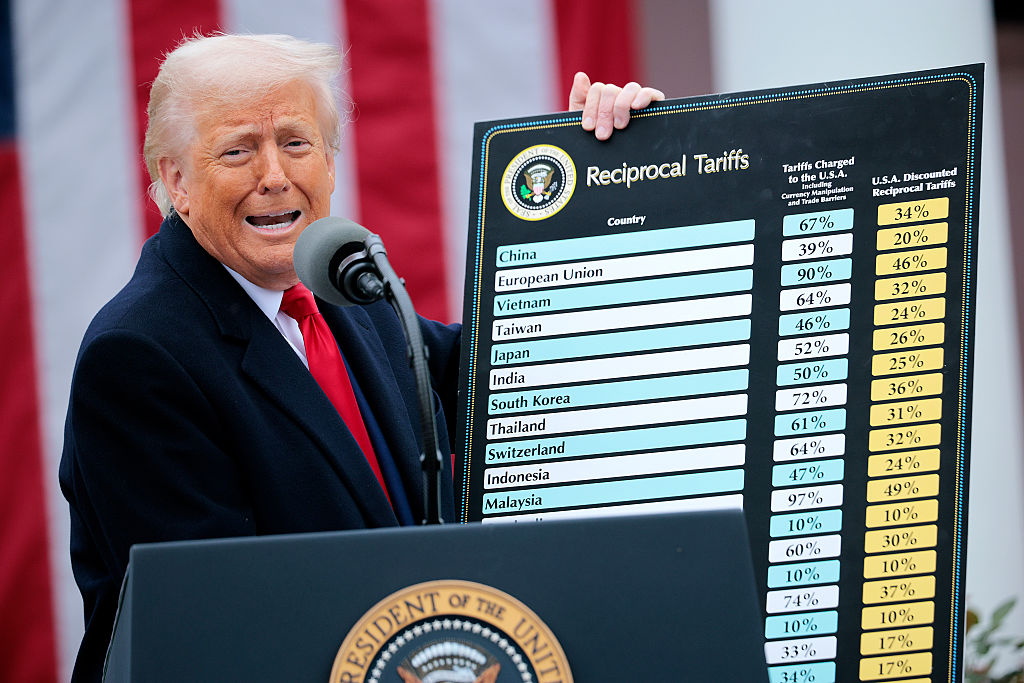Finance Minister Nicola Willis says New Zealand has been hit by a "very blunt formula" after the United States announced a new tariff on exporters.
The White House has revised its list of tariffs for particular countries and New Zealand has been put on a 15% base rate, up from the original 10% announced in April this year.
Tariffs are paid by importers of products from other countries to their own governments, like taxes, effectively making imported goods more expensive for local consumers. Advocates say they protect local economies, while detractors say they reduce trade and push up prices.
Willis told media this afternoon it was a "disappointing development".
"New Zealand and the US have a deep, long-standing friendship and US exporters already facing much lower tariffs exporting to New Zealand than goods going the other way."
Willis said Trade Minister Todd McClay and officials had taken every opportunity to point that out to the US but instead New Zealand had been "impacted by a very blunt formula".
The US did not consider the "low tariffs" New Zealand imposes, she said.
However, Willis was remaining optimistic.
"On the positive side, we do need to remember the broader context, which is our exporters continue to do well.
"New Zealand's exports rose 11.4 percent in the 12 months through June and exports to the US increased 6.3 percent over that period."
US President Donald Trump kept the minimum tariff rate of 10% for Australia.

"We haven't talked up our efforts, we've been talking about our efforts, and I had three engagements with my counterpart ... there's been a lot of contact."
McClay said many countries were doing the same thing, such as Switzerland, "who have virtually set up office there".
"I noticed they've got a 39 percent tariff against them. Ultimately, the US has said they have a high tariff regime and a different approach to trade.
"In the case of other countries like us, they also face a tariff rate, so we will continue to engage as we do with all countries and put the effort in that New Zealand exporters expect of us."
But McClay told RNZ's Midday Report that New Zealand was being unfairly penalised for what is a small trade deficit with the US.
"It appears it has been done based upon countries that have a trade deficit with the US, who sell them more than they buy. In New Zealand's case, that's about half a billion US dollars and in a scheme the size of the US economy it's really not significant or meaningful."
McClay told Midday Report he had asked Treasury for urgent advice about Friday's development.
"Many of the exporters are saying they have been able to absorb the 10 percent, or in many cases pass it on, but at 15 percent it is going to start having a greater effect on our exporters.
"We sell about $9 billion worth of goods into the US every year and so a 15 percent tariff rate is meaningful, but again the difference in trade is not significant in the scheme of things."
He maintained New Zealand had good relations with the US.
"The first step will be to talk to them directly and we've been engaging a lot. In fact, it's been very good engagement, both at official level, [Foreign Minister] Winston Peters has been to Washington, and I've met with my counterpart a number of times now."
McClay said he had put in a request for a call with Ambassador Jamieson Greer and would expect that to happen over the weekend so he could "start making the case" for a lower tariff rate.

In announcing the initial range of tariffs in April, Trump caused confusion when he held up a chart saying New Zealand charged US goods a 20% tariff, which the New Zealand government denied.
It ended up being 10%, which Willis at the time called "extraordinary".
Prime Minister Christopher Luxon said New Zealand would not respond in kind.
Two-thirds of Kiwi businesses in a survey earlier this year thought the tariffs would have a more severe global impact than Covid-19 and the global financial crisis over the next 12 months.
Trump has repeatedly threatened a range of different tariffs on various nations since returning to the White House - most recently India, citing its own trade barriers and purchasing of energy and arms from Russia, and Canada, over its newfound support for Palestinian statehood.













